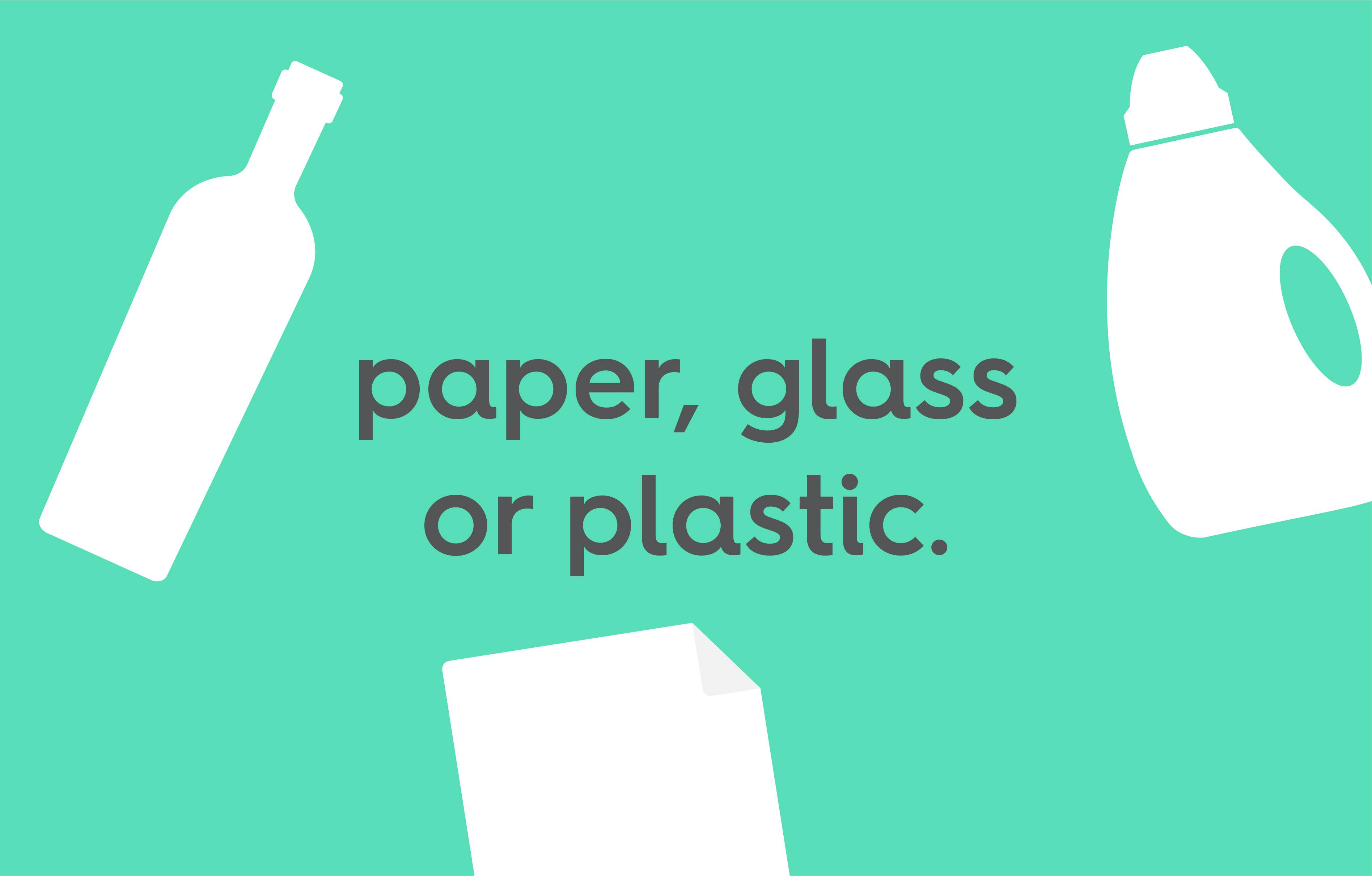05 Feb 2025
Paper, glass and plastic.
If we pop it in our recycling bin, it’s going to get recycled right?
Sadly, here in the UK it’s not quite so straightforward, so let’s look at what’s actually getting recycled successfully and how we can help improve its chances…
glass.
Glass can be recycled over and over again without losing quality so you’d think all your bottles and jars were being successfully processed into new versions of the old.
But you’d be wrong.
Only 68% of glass packaging in the UK actually gets turned into more glass packaging. The rest? Lost to landfill or downgraded into aggregates (fancy gravel).¹
Turns out there are a few issues.
1. targets.
We’re under pressure to meet high government recycling rates. It’s simpler and cheaper for local authorities to smash all our glass together than separate it out by colour or potential for reuse. Creating aggregates for construction or fibreglass still counts as recycling but it’s a far less sustainable result.
2. costs.
Reusing glass bottles and jars needs infrastructure to collect, sort, and clean them without contamination. It’s expensive compared to simply crushing glass all together.
3. no single rule.
Unlike countries with deposit return schemes like Germany, where bottles are designed for multiple uses - there’s no return schemes here and UK glass packaging is mostly disposable.
paper & cardboard.
Paper and cardboard recycling is WORKING in the UK. Phew.
In fact they hit a recycling rate of 73.4% in 2023, making it the top material recycled. Out of 5.4 million tonnes produced, almost 4 million tonnes got a second chance at life.²
1. infrastructure.
The UK has super organised collection systems for paper and cardboard. Kerbside recycling works really well and services make it easy-peasy to recycle into new paper and card.
2. awareness.
Brits are fab at sorting their paper recycling. With awareness campaigns and clear rules, people know their cardboard isn’t trash but treasure - ready to transform into something useful again.
3. costs.
Recycling paper uses up to 70% less energy and water than making it from raw materials.³ This cuts costs dramatically for manufacturers making paper and card very attractive to recycle.
plastic.
Plastic is the poster child of recycling chaos. Here’s why, despite claims of meeting the 61% plastic recycling target - this system is failing.
1. export.
A large percentage of our "recycled" plastic is exported to countries like Turkey, Malaysia, and Poland; where much of it ends up incinerated, dumped in landfills, or littering the environment instead.¹ Including this exported plastic in our recycling figures inflates the numbers.
2. no plants.
We simply don’t have the recycling plants needed to process all the plastic waste we generate. And those we do have, struggle to handle modern packs like multi-layer plastics (e.g., crisp packets, coffee pouches), which are tricky to process.
3. contamination.
Much of the plastic waste collected is mixed with non-recyclable plastics which can render entire batches of waste unrecyclable, increasing costs and reducing efficiency.
5 things YOU can do to help.
1. rinse and sort.
Even a quick rinse of your packs and jars can stop entire batches of recycling being rejected.
2. stop wish-cycling.
Resist throwing questionable items in the recycling bin (like greasy pizza boxes or broken ceramics). This can jam up sorting machines or contaminate recyclable materials.
3. reuse instead.
Prioritise reuse over recycle. Glass jars make great food containers, cardboard boxes are perfect for storage and switching to smol for your cleaning products means you aren’t reliant on a broken plastic recycling system.
4. push for change.
Lobby your local council for improvements to recycling services. Demand better facilities for harder-to-recycle plastics or clearer communication about what’s recyclable.
5. keep informed.
Watch out for upcoming changes, like the Deposit Return Scheme for plastic and glass bottles in England and Wales, due later in 2025.
By taking these steps, you’re doing your bit to help a flawed system while we wait (and push!) for bigger changes.
smol habits, big impact.
¹ National Packaging Waste Database
² Statista
³ Forge Recycling
